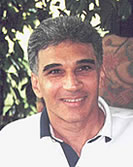This lesson is dedicated to junior tennis players, but adults take note too! Juniors tend to practice and play more consistently throughout the year, but whether you're an adult weekend warrior or a junior full-time competitor, the mental and physical pitfalls are the same.
Let us start by looking back at a child, six or seven years old, beginning to play tennis. We'll call her Tina. Tina is excited, motivated and ready to roll. She can barely hit the tennis ball, but that does not matter. Hand her a racket (which is often bigger than she is), guide her onto the court and let mom or dad feed her some balls. Fun stuff! Not much instruction is given except to find that elusive little yellow ball and hit it anywhere, even over the fence if she can do it! Tina, not being self-conscious or intimidated by failures, views hitting over the fence as a dandy idea. Mom says hit it over the fence. I can do it!
A few years go by and Tina is now eight or nine, still swinging away, still delighted with the game. We can see some major improvement in her play. She is playing instinctive, relaxed tennis, mostly because she is having fun and does not care too much about results. By this time, not only is Tina making some excellent contact with the ball, but more balls are landing in the court. Yahoo! "Who cares, send me another ball," Tina exclaims. "Okay," says mom, "but be patient, I can only feed one ball at a time." Soon mom is panting with exhaustion from feeding ball after ball after ball. Excited Tina yells out, "More, more, I want more! Why are you stopping?"
By ten or eleven years old, Tina is displaying a natural knack for hitting a tennis ball. She is still playing loose as a goose, and a surprising number of balls are landing in the court. At this point, the parents decide Tina should learn to do everything "correctly," so they begin giving her technical instruction. When that fails to help, they send her off to an instructor. Now, they figure, she is really going to learn tennis.
Mechanics to the rescue! How else will they save this child from herself and from her carefree, childlike play? She certainly cannot improve with that carefree style. No way! She needs exact techniques to accelerate her game and improve. In following this misguided guidance, Tina's mental attitude is forced to make a dramatic shift: her automatic, fun, instinctive, carefree tennis coming from the inside switches to robotic, exact, technical, restricted tennis coming from the outside. Anyone want to guess the outcome?
I would like to stop here to make a point. The child innocently knew that her carefree, relaxed, spontaneous play was the way to go. Her game was improving in due time. She needed no overdone technique, no over-thinking, no second guessing. Just hit, hit and hit with childlike abandonment. Improvement was taking care of itself.
Adults, listen carefully. That is what you have lost. You have lost that carefree, childlike play with no fear of missing, no fear of hitting over the fence and no fear of just letting go. You must find your way back to that childlike thinking, but with an adult game. This is the greatest lesson you can learn from junior players before they are harnessed by overdone mechanics. Their instinctive, spontaneous, relaxed, carefree, automatic play is genius. Absolute genius. So what do we do? We tell them they can't do that anymore.
Okay, back to you juniors. You need to know that being a good, excellent or great tennis player is internal, not external. It is not about going to some dynamic academy in another state or country. It is not about tracking down the best tennis guru or master pro level-five coach. It is mental. It is about your personal decisions to do what it takes. No coach can make you great, only you can. Yes, a coach or a camp can guide you, give you direction and encouragement, but that's it. The rest all comes from YOU. The thousands of decisions you make (most of which involve a relentless drive to hit tennis balls) come from you. I don't care if you are taking lessons from the mighty Fed himself, if you do not have the will to prepare to win, you are not going to make it. And guess what? When you are self-motivated to practice, practice, and keep practicing, you can learn to play incredible tennis anywhere. Your location is not the deciding factor in excellence. Your thoughts, your choices, your willingness to drive yourself: these are the deciding factors. In any case, wherever you go, whether to a Camp Excellence or to a simple neighborhood court, you always bring YOU along.
Juniors, you knew the secret when you were very young. Improvement came from hitting and hitting and having fun. It was internal! Getting better was about you doing what it takes to get better. Now, all of a sudden, you are looking for something external to make it happen. What has changed? Great play is still about effort, and effort comes from the inside. Being great at tennis is internal, not external.
From the beginning, in your childlike freedom to play and play and play spontaneous tennis, you juniors possessed the blueprint to be great players. No need to change the game plan. You know what to do, now just do it! And while you're at it, tell a few adults along the way... you will make my job much easier!


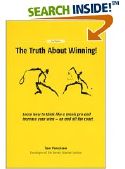
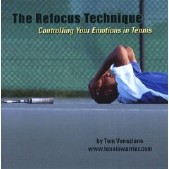
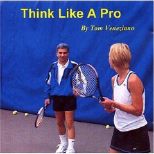
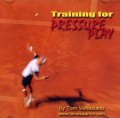



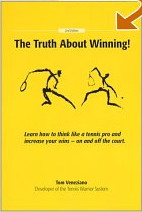
 You will join 13,000 other subscribers in receiving news of updates to the Tennis Server along with monthly tennis tips from tennis pro Tom Veneziano.
You will join 13,000 other subscribers in receiving news of updates to the Tennis Server along with monthly tennis tips from tennis pro Tom Veneziano. 